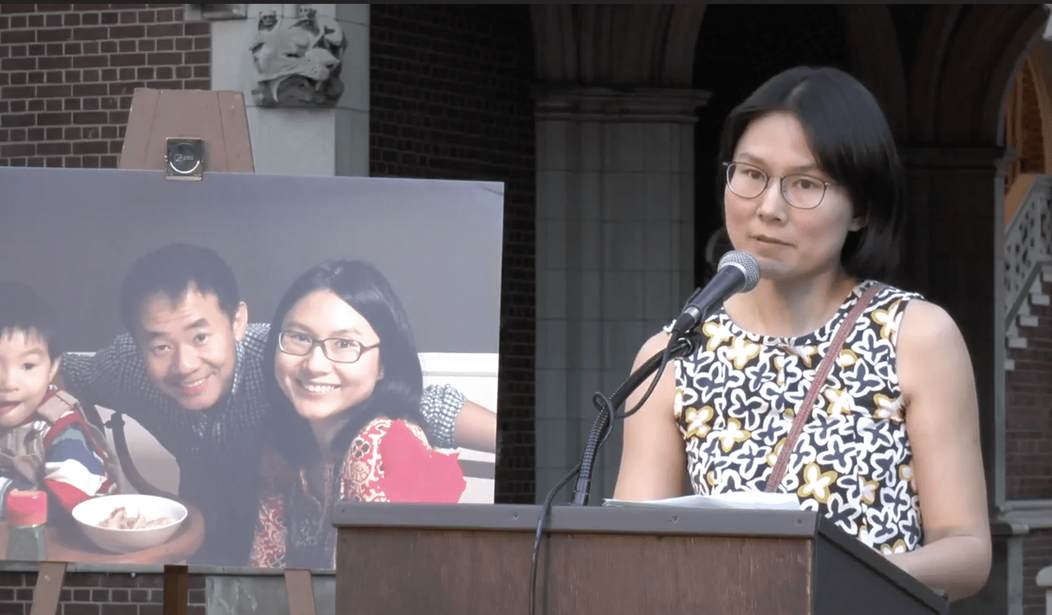The head of the International Science Council stepped in to lobby for the release of an American hostage detained in Iran more than 2 years ago while doing research for his Ph.D.
Xiyue Wang is a fourth-year doctoral candidate in late 19th and early 20th century Eurasian history at Princeton University. He was arrested in Iran while conducting academic research on the administrative and cultural history of the late Qajar dynasty in connection with his dissertation.
Wang was arrested in August 2016 after Iran said he was scanning large quantities of documents and sending digital scans to the State Department, Princeton and Harvard. His doctoral adviser said Wang was scanning historical documents — a “normal, standard scholarly practice” — that were about 100 years old.
The husband and father of a young son was sentenced to 10 years in prison.
Wang had previously visited Iran for nearly two months in early 2016 to study Farsi — the University of Washington graduate speaks English, Mandarin, Persian, Turkish and Pashto — and returned to continue his research that May. He was traveling on a student visa, was transparent about his research plans, and his agenda was approved by Iran’s Ministry of Foreign Affairs.
The International Science Council’s predecessor, the International Council for Science (ICSU), wrote to Iranian authorities in August 2017 to appeal for a review of Wang’s case, which wasn’t made public until his sentencing was announced in July 2017.
The United Nations Working Group on Arbitrary Detention recently found no legal basis for Wang’s arrest and imprisonment. “Mr. Wang was peacefully exercising his right to seek and receive information for academic purposes in the form of historical records held by a public body, and that this falls within the boundaries of freedom of expression,” the body found.
ISC president Daya Reddy wrote to Ayatollah Ali Khamenei that Wang’s “deteriorating health” is a concern and “there is no evidence that Mr. Wang was present in the Islamic Republic of Iran for any reason other than to pursue his dissertation research.”
“The International Science Council promotes equitable access to data, information, and other resources for academic researchers. Mr Wang was visiting Iran in good faith as part of his academic studies. It is our understanding that Mr Wang was transparent about his purpose for visiting Iran and received the necessary permissions from the Iranian Authorities to access historic archived material,” Reddy wrote.
Throughout the year, Wang’s wife, Hu Qua, has been lobbying the White House, State Department, Congress and the UN to help secure her husband’s release.
“Trying to stay afloat in one after another political turbulence is so tiring. All I want is to settle down with Xiyue and return to our normal life. I continue to stay strong and remain hopeful for the reunion with Xiyue, after 30 months. Can’t believe I am in fall again!” she tweeted a week ago.
Wang is being held in Tehran’s notorious Evin Prison, Qu said during a May vigil at Princeton, “in an area that is mostly underground, cold and dark, overcrowded, and infested by bedbugs.”
“As an American and a non-Muslim, Xiyue has been subjected to abuse and harsh interrogations by the Iranian authorities,” she said.
Wang’s friend Dong Xiang said at the rally that Xiyue is actively exchanging ideas with others in prison “in order to maintain his intellectual capacity and mental health.”
Swiss authorities have visited Wang on behalf of the U.S. multiple times since his August 2016 arrest, the State Department says.
“As we have said repeatedly, the allegations against Mr. Wang are baseless and his detention demonstrates that the Iranian regime does not respect the rule of law. We call on the Iranian regime to release Mr. Wang,” press secretary Heather Nauert said last month. “Iran must also immediately release U.S. citizens unjustly detained and missing in Iran, including Siamak Namazi, Robert Levinson, and to respect all of its applicable international obligations and commitments.”









Join the conversation as a VIP Member